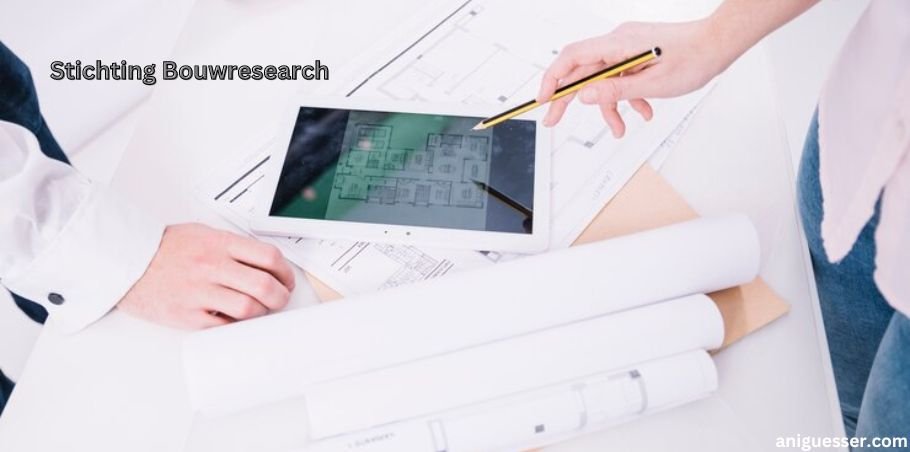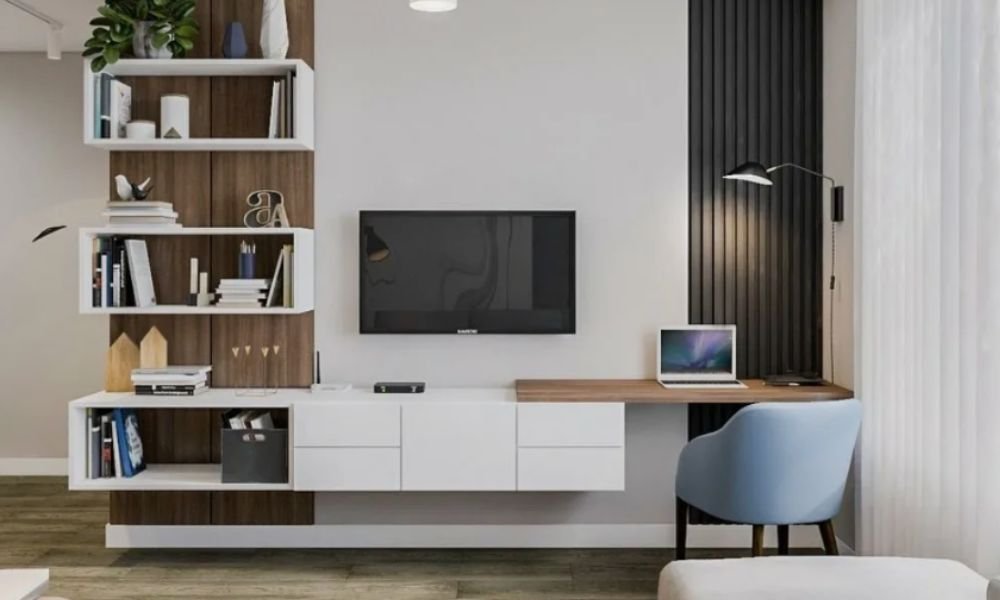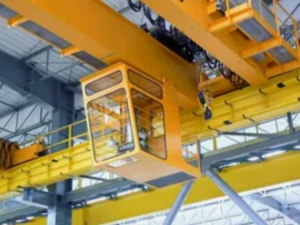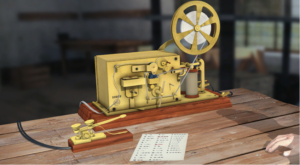Stichting Bouwresearch: How to Get Involved in Industry Advancements
Stichting Bouwresearch (SBR) is a leading non-profit foundation committed to research and development in the Dutch construction industry. Since its inception, it has played a crucial role in shaping construction practices, promoting sustainability, and driving technological innovation across the sector. This article delves into the importance of SBR, its history, contributions, and the challenges it faces in a rapidly evolving industry.
The Foundation of Stichting Bouwresearch
The concept of Stichting Bouwresearch emerged from a pressing need to support the construction industry with reliable research and development. In the mid-20th century, the Dutch construction sector was experiencing rapid growth, which brought with it numerous challenges. Concerns about building safety, urban planning, and the quality of materials prompted the creation of SBR, Since then, the foundation has evolved into a key player in the industry, offering invaluable insights into best practices, safety protocols, and sustainable building techniques. It has been a cornerstone for the ongoing improvement of construction methods in the Netherlands.
The Mission of Stichting Bouwresearch
The core mission of Stichting Bouwresearch is to promote innovation in construction while ensuring that the highest safety standards are met. The foundation operates with a clear focus on three main pillars: safety, sustainability, and technological advancement.
Safety is paramount in the construction industry, and SBR invests significant resources into researching new materials, building designs, and regulations that minimize risks. Their studies have directly influenced national safety codes, making buildings safer for occupants and workers alike.
Sustainability is another vital aspect of the foundation’s mission. As the construction sector is one of the largest contributors to environmental degradation, SBR has taken the lead in advocating for greener practices. The foundation researches eco-friendly materials, energy-efficient building designs, and waste-reduction strategies that minimize the carbon footprint of construction projects.
Technological advancement is the third pillar of the foundation’s mission. The construction industry is being transformed by digital tools, AI, and machine learning, and SBR is at the forefront of integrating these technologies into mainstream construction practices. The foundation continually investigates how modern tools can improve efficiency, reduce costs, and increase the overall quality of construction projects.
Historical Milestones That Shaped Dutch Construction Practices
Stichting Bouwresearch has a rich history of contributing to the Dutch construction sector. One of the foundation’s early milestones was the introduction of studies on building materials that helped improve structural safety. At a time when urban development was rapidly expanding, SBR’s research provided critical insights into the best practices for large-scale projects, helping to avoid costly mistakes and ensure the safety of buildings.
In the 1970s, the foundation began focusing more heavily on sustainability, long before environmental concerns became mainstream. It pushed for the use of renewable materials and energy-efficient designs, setting the stage for a more sustainable approach to construction in the Netherlands. Over the decades, these efforts have culminated in significant changes to construction regulations, mandating the use of eco-friendly materials and technologies.
The turn of the millennium brought about a new era of technological advancements, and SBR quickly adapted to these changes. The foundation has since been instrumental in integrating digital tools like Building Information Modelling (BIM) into Dutch construction practices. BIM allows for more efficient project planning and management, reducing errors and improving overall project outcomes.
Key Research Areas
Stichting Bouwresearch has several key research areas that it focuses on. One of the primary areas is sustainable construction. The foundation studies various materials and construction methods that can reduce the environmental impact of buildings. These include eco-friendly building materials like recycled concrete, low-emission steel, and renewable insulation materials. SBR also examines energy-efficient designs, such as passive house principles, which minimize energy consumption in buildings.
Technological advancements are another crucial area of research for the foundation. SBR continually explores how AI and machine learning can be used to streamline construction processes. For instance, AI can be used for predictive maintenance, helping to identify potential building failures before they occur. This not only enhances safety but also reduces long-term costs by preventing expensive repairs.
SBR’s research into building safety focuses on compliance with evolving regulations and developing new safety protocols. This includes fire safety studies, seismic resilience, and structural integrity analysis. By continuously refining these areas, SBR helps ensure that the Dutch construction industry remains at the forefront of safety innovation.
The Impact of SBR on Dutch Construction
The influence of Stichting Bouwresearch on the Dutch construction industry cannot be overstated. Its research has shaped national construction standards and regulations, helping to create a safer and more sustainable industry. Many of the foundation’s recommendations have been adopted into national policies, setting a high benchmark for construction safety and environmental responsibility.
SBR’s work has also had a significant impact on the efficiency of construction projects. The introduction of BIM and other digital tools, promoted by the foundation, has improved the planning and execution of large-scale projects. These tools allow for more accurate design processes, better coordination among project teams, and fewer costly errors.
Perhaps one of the most significant contributions of SBR is its role in fostering a culture of sustainability within the Dutch construction industry. The foundation’s advocacy for green building practices has led to widespread adoption of eco-friendly materials and energy-efficient designs. As the world faces the growing threat of climate change, this focus on sustainability has become more important than ever.
Collaboration and Partnerships
Stichting Bouwresearch’s success is largely due to its collaborative approach. The foundation works closely with academic institutions, research organizations, and industry leaders to drive innovation. These partnerships allow SBR to tap into a broad pool of knowledge and resources, ensuring that its research remains at the cutting edge.
International collaboration is also a key part of SBR’s strategy. The foundation has formed partnerships with research institutions across Europe and beyond, sharing knowledge and best practices. This global approach has helped SBR remain at the forefront of construction research, positioning the Dutch construction industry as a leader in innovation and sustainability.
Educational Programs Shaping the Future of Dutch Construction
One of the ways that Stichting Bouwresearch contributes to the future of the industry is through its educational programs. The foundation offers workshops, seminars, and training programs designed to equip construction professionals with the latest knowledge and skills. These programs cover a wide range of topics, including sustainable building practices, the use of digital tools, and compliance with safety regulations.
SBR also provides opportunities for students and young professionals to engage with the industry. Through internships and research opportunities, the foundation helps to foster the next generation of construction leaders. These educational programs are essential for ensuring that the Dutch construction industry remains competitive in a rapidly evolving global market.
The Challenges Faced by Stichting Bouwresearch
Despite its many successes, Stichting Bouwresearch faces several challenges. One of the biggest obstacles is financial. As a non-profit organization, SBR relies on funding from various sources, including government grants and private donations. Securing consistent funding can be difficult, particularly for long-term research projects that may not yield immediate results.
Another challenge is the rapid pace of technological change. The construction industry is undergoing a digital transformation, with new tools and technologies emerging at a breakneck pace. Keeping up with these advancements requires significant resources, and SBR must continually adapt its research agenda to stay relevant.
Finally, the foundation faces the challenge of ensuring that its research has a real-world impact. While SBR conducts valuable studies, it is crucial that its findings are translated into actionable policies and practices within the industry. This requires close collaboration with policymakers and industry leaders, as well as effective communication of research outcomes.
The Future of Stichting Bouwresearch
Looking ahead, Stichting Bouwresearch is poised to continue playing a vital role in the Dutch construction industry. The foundation is expanding its research into new areas, including smart cities, automation, and the future of urbanization. These emerging fields will be critical as the world grapples with issues like population growth, climate change, and resource scarcity.
One of the most exciting areas of future research is the concept of smart cities. SBR is exploring how digital technologies can be integrated into urban planning to create cities that are more efficient, sustainable, and livable. This includes the use of AI for traffic management, energy optimization, and even waste management.
Automation is another key area of focus. As construction becomes more reliant on robots and AI-driven machinery, SBR is investigating how these technologies can be used to improve efficiency while maintaining safety standards. This research is particularly relevant as the industry faces a growing labor shortage.
How to Get Involved with Stichting Bouwresearch
Individuals and organizations interested in supporting Stichting Bouwresearch can do so in a variety of ways. The foundation offers opportunities for volunteering, internships, and membership, all of which provide valuable access to the latest research and industry events. By getting involved, participants can contribute to the advancement of the Dutch construction industry and help shape its future.
FAQs about Stichting Bouwresearch
What is the mission of Stichting Bouwresearch?
The mission of Stichting Bouwresearch is to drive innovation, sustainability, and safety within the Dutch construction industry through research and development.
How does the foundation influence construction policies?
Through its research and collaboration with policymakers, Stichting Bouwresearch has a direct influence on construction standards, safety regulations, and sustainability policies in the Netherlands.
Can students and professionals participate in the foundation’s programs?
Yes, Stichting Bouwresearch offers educational programs, internships, and workshops for both students and professionals interested in construction research and innovation.
What are the future goals of Stichting Bouwresearch?
The foundation’s future goals include expanding research into smart cities, automation, and urbanization, while continuing to focus on sustainability and safety in construction.
How does Stichting Bouwresearch contribute to sustainable building practices?
Stichting Bouwresearch promotes the use of eco-friendly materials, energy-efficient designs, and carbon-reduction strategies in its research and recommendations.
Conclusion
Stichting Bouwresearch is a key force driving innovation, sustainability, and safety in the Dutch construction industry. Through its research, educational programs, and partnerships, the foundation has made a lasting impact on how buildings are designed, constructed, and maintained. As the industry faces new challenges, including climate change and technological disruption, SBR will continue to be a vital player in ensuring that Dutch construction remains at the forefront of global best practices.
Share this content:













Post Comment